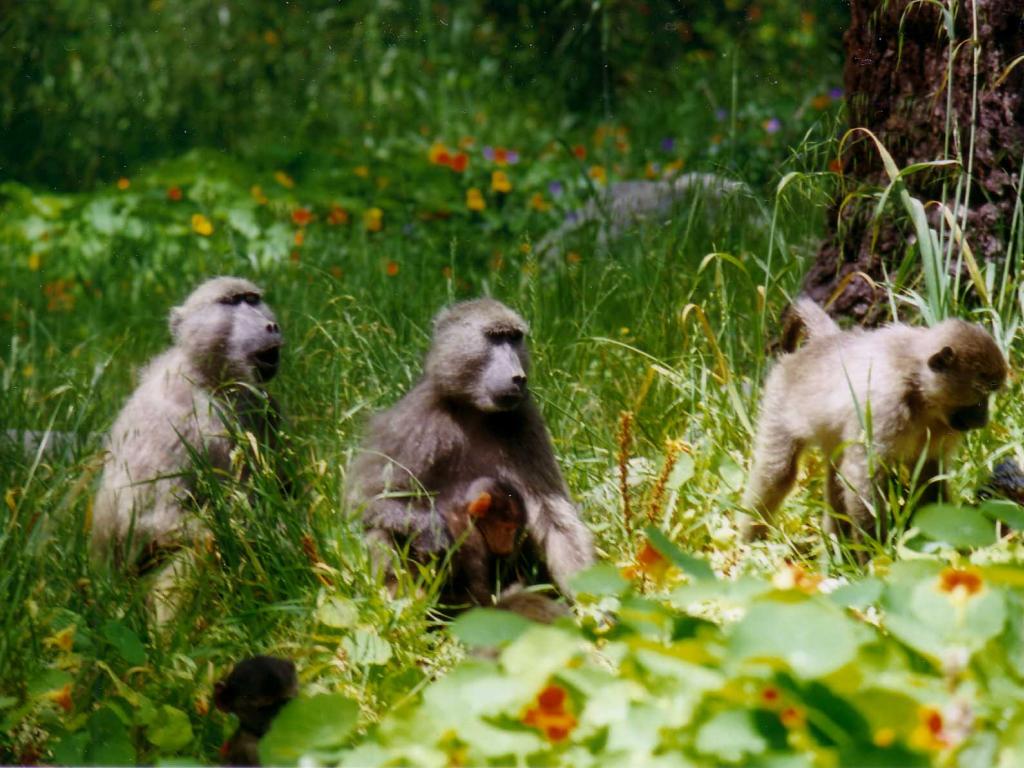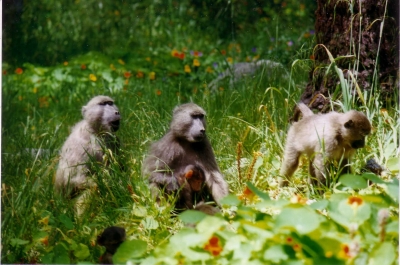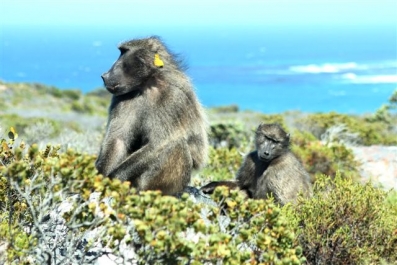Canny raiding baboons find loophole in strategy to manage them


"Raiding baboons are a real challenge in the Cape Peninsula", says Professor Justin O'Riain, from the Department of Biological Sciences at UCT. Professor O'Riain is a co-author on the study published by the Zoological Society of London's Animal Conservation and has been studying baboon in the region for over a decade.
He explains how the baboons enter properties to raid in gardens and bins, but also enter homes and sometimes take food directly from people.In an attempt to solve this human-baboon conflict, the municipality of Cape Town employs field ranger to "herd" the baboons away from the urban edge. The field rangers actively deter the baboons that approach no-go areas, with a combination of their physical presence, paint-ball markers and loud noises. "This strategy is largely successful," added Professor O'Riain, with human induced injures and death to baboons having decreased dramatically, and the baboons now spend more time in natural areas. However, it is essential to continue to monitor the efficacy of current management, and the Swansea University team provided independent assessment.
PhD researcher Gaelle Fehlmann, from Swansea University, followed one of the baboon troops living at the edge of Cape Town, on foot, from dawn to dusk. Ms Fehlmann and field assistant Catherine Kerr-Smith observed their behaviours and recorded their location using a handheld GPS. "We found that the management strategy in place is efficient at reducing the time baboons spend in the urban areas. Remarkably however, baboons appear to have found a loophole in the management strategy and exploit this to making short forays to the nearest commercial and residential properties” said Ms Fehlmann.“Our models show that baboons are avoiding urban areas but, instead, use areas in their vicinity that are close to natural refuges – such as trees – and intriguingly where baboon field rangers disagree on the best management strategy to adopt.”
The baboons appear to respond to disagreements between field rangers and exploit the indecision within land nearby the urban edge to mount brief raiding trips into Cape Town suburbs. Guarding crops or livestock has always been used to protect our food resources from wildlife. But when it comes to protecting cities from a species with high cognitive skills such as baboons, this requires more team effort, and especially, a higher consensus near to the urban edge. “Baboons live in social groups of up to a hundred individuals,” said Dr Andrew King, head of Swansea University’s SHOALgroup in the College of Science, who is co-author on the study. “To be successful in this ever-changing social environment requires individuals to coordinate movement, preserve bonds, and strategically respond to and interact with others.”
It is therefore perhaps not that surprising the baboon troop uses the same skills to assess and strategically respond to field rangers’ consensus (or lack thereof) on management strategies close to the urban edge. Now the research team have identified the loophole, the management team in Cape Town can work to plug it by ensuring a higher level of consensus amongst field rangers on the management of baboons along the urban edge. The goal being to further reduce baboon incursions into both vineyards and urban areas and keep them within the table Mountain National Park. The research team’s next step is to quantify both the risks and rewards associated with raiding using tracking collars on the males to further understand how and why raiding develops.

